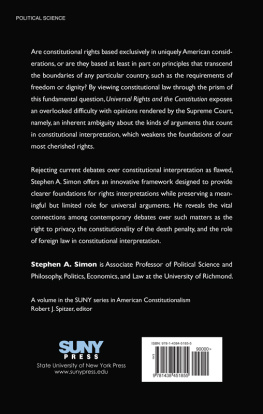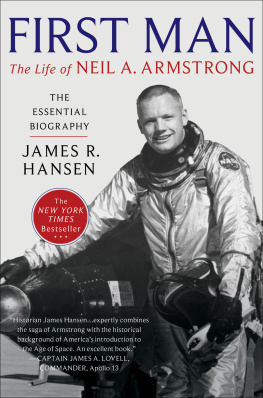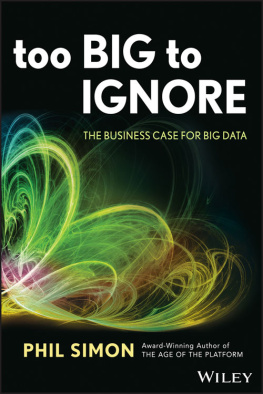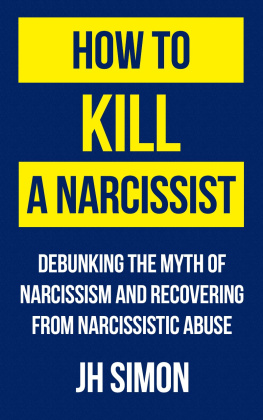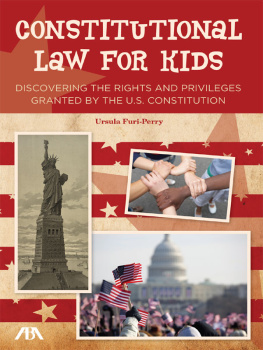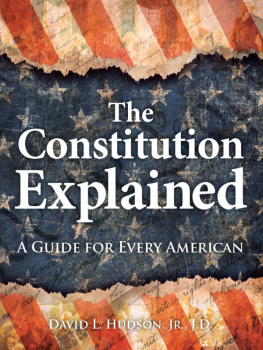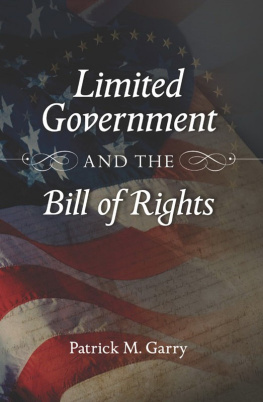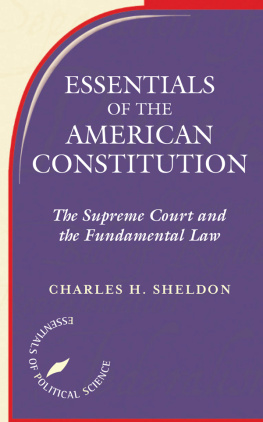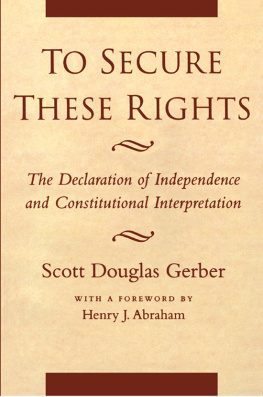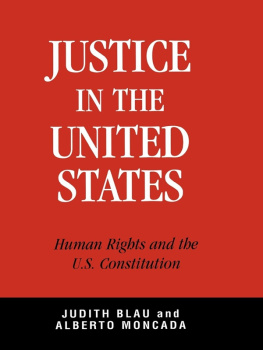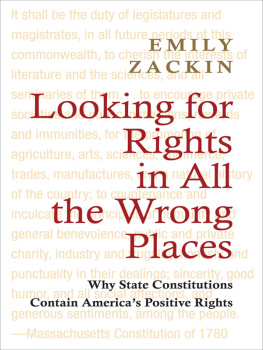Universal Rights and the Constitution
SUNY series in American Constitutionalism
Robert J. Spitzer, editor
Universal
Rights and the
Constitution
Stephen A. Simon
Published by State University of New York Press, Albany
2014 State University of New York
All rights reserved
Printed in the United States of America
No part of this book may be used or reproduced in any manner whatsoever without written permission. No part of this book may be stored in a retrieval system or transmitted in any form or by any means including electronic, electrostatic, magnetic tape, mechanical, photocopying, recording, or otherwise without the prior permission in writing of the publisher.
For information, contact State University of New York Press, Albany, NY
www.sunypress.edu
Production by Ryan Morris
Marketing by Fran Keneston
Library of Congress Cataloging-in-Publication Data
Simon, Stephen A., 1966
Universal rights and the constitution / Stephen A. Simon.
pages cm. (SUNY series in American constitutionalism)
Revision of dissertation (Ph. D.University of Maryland, College Park, 2007) issued under title: Human rights or American privileges? : the Supreme Courts evolving use of universal reasoning.
Includes bibliographical references and index.
ISBN 978-1-4384-5185-5 (hardcover : alk. paper)
1. Constitutional lawUnited States. 2. International and municipal lawUnited States. 3. Natural lawUnited States. 4. Human rightsUnited States. 5. LawUnited StatesForeign influences. I. Simon, Stephen A., 1966Human rights or American privileges? II. Title.
KF4581.S57 2014
342.73085dc23
2013025960
10 9 8 7 6 5 4 3 2 1
For my parents, James F. Simon and Ann Vardaro Simon,
with love and gratitude
Contents
Acknowledgments
This book began as my dissertation at the University of Maryland. I am very grateful to Mark Graber and Wayne McIntosh, my principal teachers and mentors in graduate school, who were continuing sources of advice and encouragement. Herman Belz, Charles Butterworth, and Stephen Elkin also offered critical comments and support.
My colleagues at the University of Richmond have been extraordinarily generous in offering suggestions on reworking the dissertation into a book. Richard Dagger, Dan Palazzolo, and Andrea Simpson read and commented on entire drafts and offered valuable input in too many ways to list.
I also want to express my gratitude to the many others who have read and commented on this work. Ronald Den Otter offered suggestions on matters ranging from the big picture to significant details. Paul Chen, Kevin Cherry, and David Lefkowitz were especially helpful regarding the philosophical portions of the discussion. Many thanks to Lief Carter, Frank Colucci, Justin Dyer, Stephen Feldman, David Forte, Scott Gerber, Corinna Lain, Shmuel Lissek, Gary McDowell, Wayne Moore, John Pagan, and Ellis West, for offering helpful feedback on outlines or chapter drafts at various stages of this project.
I am fortunate to have excellent editors at SUNY Press, Michael Rinella and Ryan Morris. Additional thanks to the editorial assistant, Rafael Chaiken, and to the administrative coordinator at the University of Richmond Political Science Department, Beth Ann Howard, for all of the assistance throughout with formatting and other matters that facilitated completion of the book.
Introduction
This book critically examines a fundamental ambiguity in the Supreme Courts jurisprudence regarding the reasoning behind its constitutional rights decisions. The confusion concerns whether the opinions rest exclusively on the nations particular history and context or whether they rest at least in part on a basis that is independent of that history and context. I argue that this ambiguity can be understood as a product of the justices flawed response to a central tension in American constitutionalism regarding the foundations of individual rights. After describing a parallel source of confusion in contemporary constitutional theory, I propose an alternative approach to constitutional interpretation, which is designed to provide clearer foundations for constitutional rights decisions, while preserving a meaningful but limited role for universal arguments in constitutional law.
My critique of the courts constitutional rights jurisprudence is not focused on doctrine, but on the kinds of arguments that the justices use to justify decisions. The American inclination to translate grievances against the government into the language of rights places a premium on understanding the considerations that carry weight in discerning the meaning of constitutional rights.
Constitutional theory often has been framed around dichotomies that fail to capture the vital distinction between universal and particular arguments. Beginning around the mid-1970s, for example, a good deal of scholarship was centered around the distinction between interpretivism and noninterpretivism, with the former referring to the view that constitutional meaning derived exclusively from ideas explicitly or implicitly indicated by the text.may rely on fundamentally different kinds of arguments to draw out the meaning of those concepts. The originalism-versus-nonoriginalism paradigm frames debate around the first reference point in discerning constitutional meaning. Regardless of whether we characterize interpretation as traceable to the text or original meaning, though, we must provide reasons explaining why one interpretation is better than another; the distinction between universal and particular arguments captures a crucial fault line regarding the kinds of reasons that are accepted as legitimate in constitutional debate.
Natural Law and Universal Arguments
The subject of universal arguments is vital to the study of constitutional law and theory regardless of ones ideology or research agenda. Unfortunately, however, scholars often neglect the contemporary salience of universal arguments. One reason is the marginalization of natural law in contemporary discourse more generally. Universal principles commonly are associated with the concept of natural law, This disconnect between reality and perception with respect to the role of universal arguments is a source of confusion regarding the basis of constitutional rights.
To be sure, John Finniss Natural Law and Natural Rights
Another factor limiting mainstream interest in the contemporary role of universal arguments in jurisprudence is the tendency to conflate natural law reasoning with recognition of the Framers intellectual context. This tendency is illustrated by the Sturm und Drang over Clarence Thomass natural law beliefs during his confirmation hearings. Joseph Biden Jr. (D-DE), then the chairman of the Senate Judiciary Committee, identified Thomass references to natural law as the hearings most urgent concern,
I use the term universal arguments rather than the more familiar term, natural law, because it is important to recognize the continuing role of universal arguments in constitutional law and theory even though those arguments frequently diverge from ideas historically associated with natural law. We will miss the contemporary significance of universal arguments if we search only for the term natural law and conceptions of natural law that mirror those of the Framers. Contemporary discourse typically shuns terms like natural law or natural rights because they carry baggage that is unwelcome in the context of adjudication. First, natural law has been associated with religious faith.

